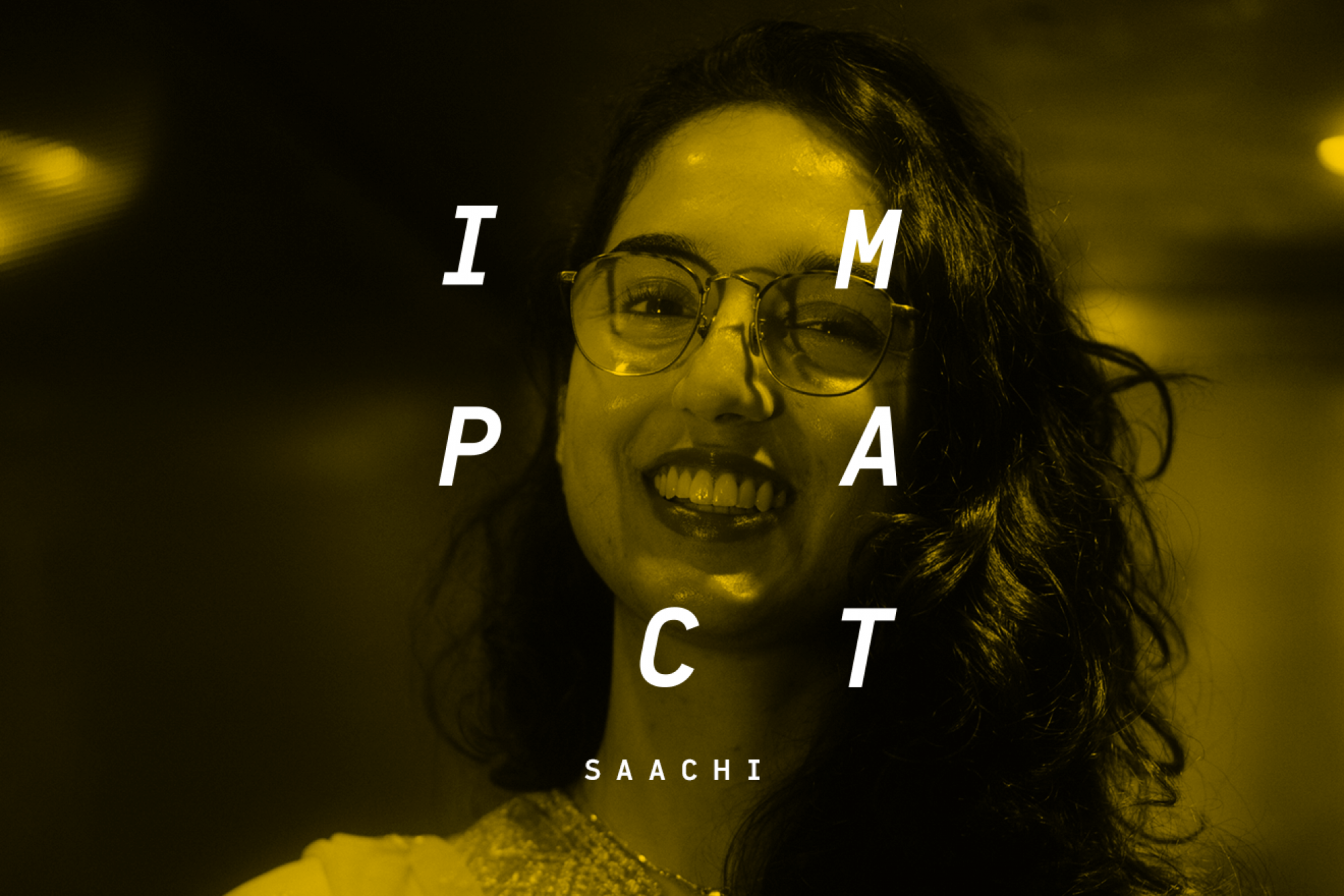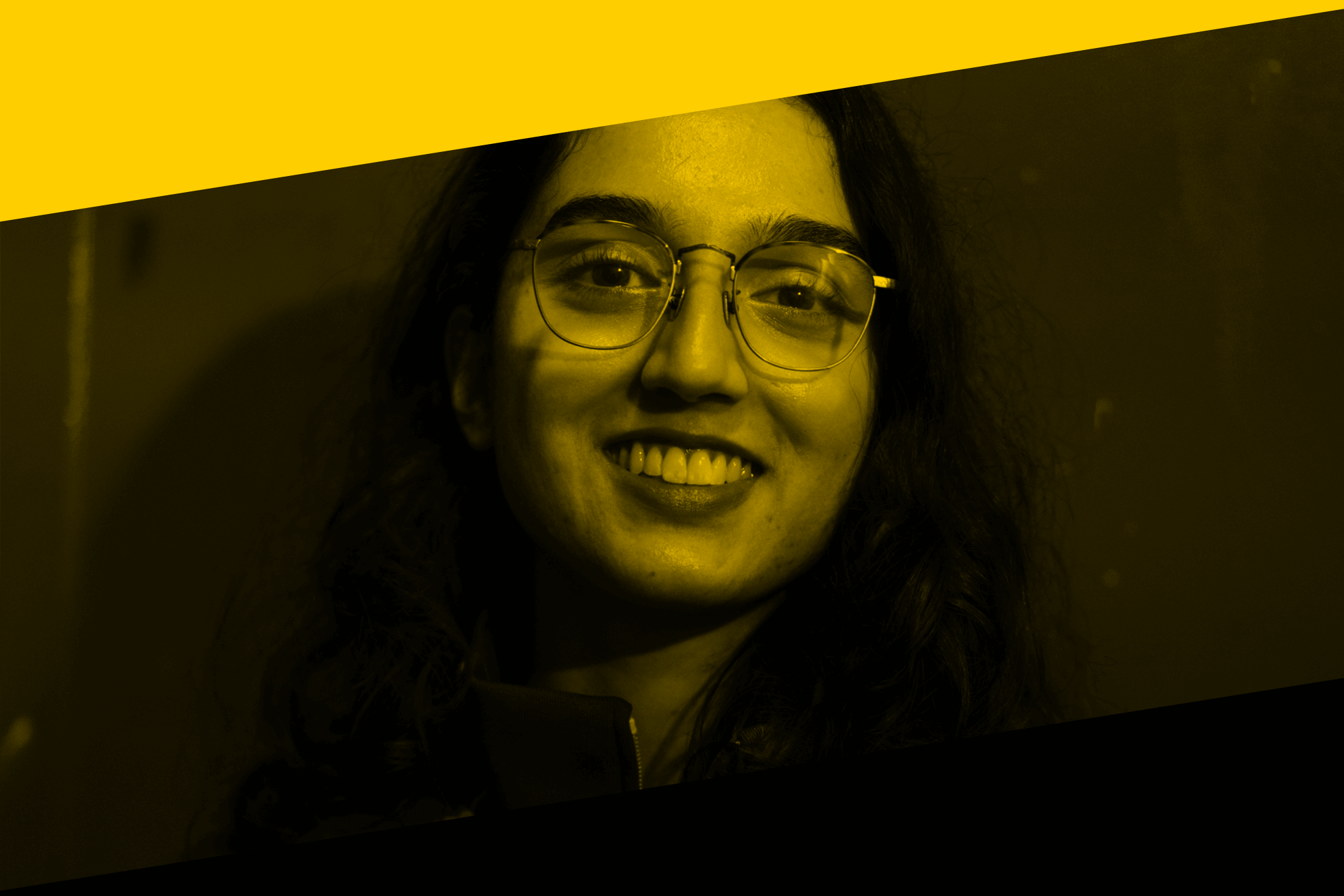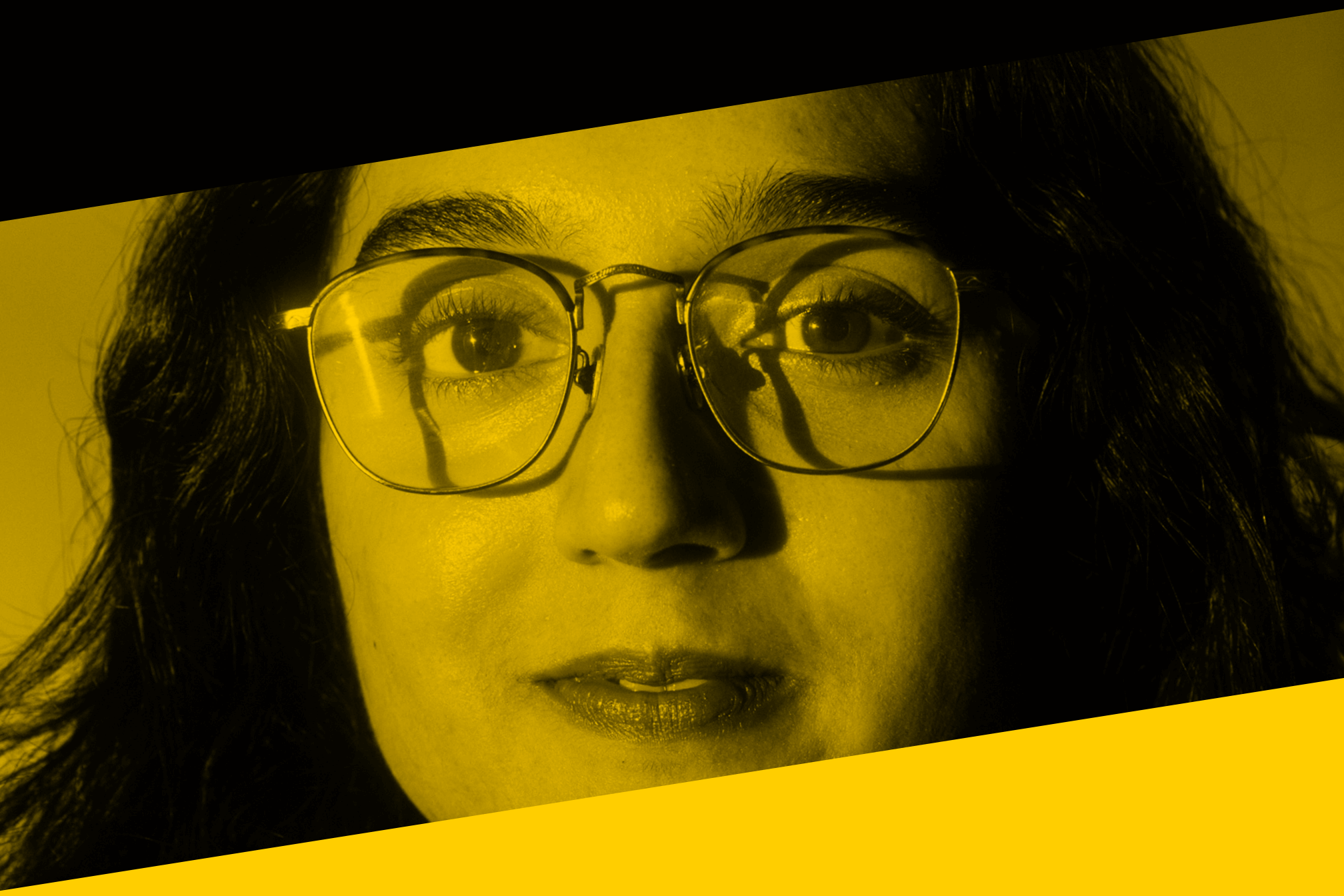 Music
Music
Make the music come alive: Saachi’s genre-bending sets are filled with personality
Saachi shares a high-energy mix and speaks to Fizzy Noor about how recovering from a terrible accident led her to DJing, learning on the job in Tokyo, and representing her authentic self in music
Saachi's sets are dynamic explorations of the sounds and influences that have shaped her. Whether she’s spinning UKG, grime or Banghra, the London-based DJ with roots in India and Kuwait fuses varying cultural strands in a way that is fun and refreshing.
Representing herself to the full and working within collectives like Daytimers and Selextorhood, she's at the heart of a shift that’s happening in music, clubs and, more widely, Britain right now: hammering home the point that South Asian culture is a part of British culture, and transforming the way it is received in public dance spaces. As a DJ, her musical mission is to create an open and accessible space for all - regardless of background - where everyone can feel free to celebrate themselves and each other.
In this conversation, Saachi explores what it’s like to be a self-taught DJ; accessibility within the industry; togetherness and community; and what it means to be authentic. Check it out alongside her Impact mix below.

Tell us your DJ origin story
I got into a pretty bad accident in 2018. I couldn’t walk or do anything and there’s only so much TV you can watch before going crazy. I needed to do something else. I’ve been obsessed with music since I was a kid, so I just thought: “Why not try DJing?”. I was actually taught classical music when I was younger; I played the clarinet in school, and then I joined a band called Krash where we played music that was heavily inspired by Stomp. We’d just take junk like car exhaust pipes and oil drums and make rhythms together. So I guess I’ve always been into experimenting with different sounds.
After the accident, I studied abroad in Tokyo. There was a bar near our dorm and one night, I randomly asked the barman to play one of my mixes. He loved it so much that he invited me to come back and play again the next weekend - and then every weekend after that. That’s how I got my first residency. Most people start in their bedroom, but I basically learned on the job. My learning curve was steep but it was an incredible experience.
Dealing with the accident must have been really hard. How did music help you with that?
The worst part was probably psychological. I’m a really active person, but suddenly I couldn’t do anything for myself. It changed my perspective on life. When something like that happens, you realise how fragile you really are and how quickly life can change. I think that’s what pushed me to get out of my comfort zone with music.
How did you start DJing in the UK?
I’d had such a positive experience in Japan that when I came back to the UK, I just wanted to keep DJing. But that wasn’t easy. I’d just moved back from the other side of the world, so I didn't know anybody and I had no idea how to get into it here.
But then I went to one of Selextorhood’s sessions and I felt so comfortable. I was surrounded by incredible women who weren’t trying to be or do anything special. They just loved DJing. We did a few things together, but then lockdown happened. One of the good things about lockdown, though, was that DJing as a craft became so much more democratic and accessible. It wasn’t about clubs, promoters or who you know - it was about radio. The first big thing that happened for me in the UK was that I got a residency on Vandelay Radio, which gave me a chance to put music out and do things on the regular. Then I just kept on saying yes to every opportunity after that.
Read this next: A potted history of the 1990s British (South) Asian Underground
What made you want to get into DJing instead of any other form of music?
The reason why I started DJing was honestly just that I have a short attention span. I can’t listen to a song for like seven minutes long. At parties, I’d just sit on YouTube and keep skipping songs until everyone would get annoyed at me. They’d be like “Saachi, stop killing the vibe”, but I couldn’t help it. I just had to make the music move somehow. That’s where my love for DJing comes from.
When I was 18, my sister took me to Dekmantel and that was when I really fell in love with electronic music. I saw Hunee, Fatima Yamaha and so many incredibly talented people playing music that was just so different to what I’d heard before. I loved the rhythms and especially the drums. I feel like by the time I took that step to start DJing, I’d already had so much exposure to it that it just kind of came naturally.
Your sets are really genre-bending - what made you want to fuse, for instance, Bhangra, grime and UKG?
My approach has always been very simple: it's just songs I like. I'm not the best technical DJ. There are DJs out there who are way better than me, but I think the uniqueness of my sound is in my selection. Thinking about how to make a set, for me, is about asking myself: how do I make this flow? How do I make it interesting? How do I make the music come alive? I personally think that's where the art is and that's the craft. That's where the personality of the DJ is.
When I started, I loved house. Like for the first two-and-a-half years or something, I only played house. People would actually say to me “You’re just the house DJ. You just play one genre”, but it’s just that house was my obsession at the time.
How did that grow into more genres?
To be honest, I just started to feel that people were pigeonholing me and I wanted to break out of that box. I wanted to prove that I can do so much more, so I got really into taking risks, exploring and experimenting. I stumbled across a new sound that I really liked and thought “Let’s just roll with it”, and that’s kind of the principle I stick to now: I just play what I like.

It’s really fun watching you weave South Asian tidbits into your sets, but have you ever been nervous about playing Bollywood music to Western audiences?
I used to get really nervous in general. For the first two years or so, I had the world’s worst nerves. It was awful. For my first ever set that was streamed on YouTube, I couldn’t even enjoy it. After that, I had to ask myself: what’s the point if I’m not enjoying it? It’s taken me a very long time to get here, but I don’t feel as nervous anymore.
In terms of playing Bollywood music to a Western audience, I don’t get nervous about that. I would hope that my listeners are open and receptive to sounds that may not be familiar to them, because I’m always going to keep moving it around. I’m not ever going to paint within the lines.
I'm just gonna do what I enjoy and if that’s something that would make you uncomfortable, you probably wouldn't like my sets at all. So that's why I don't feel nervous ever playing anything like that.
What’s made you less nervous about DJing over the years?
I’m a very reserved person and I always worry. I had really bad imposter syndrome when I started DJing. I’d always wonder why I was getting these cool opportunities. But I think having some really positive experiences has helped with my nerves. One that stands out was in 2020 at Brixton Courtyard. They were having open decks and I got selected. This was back when everyone had to sit at tables because of the COVID rules. I was chuffed to get picked. When it was my turn to go play I was so nervous, but then I looked up at the crowd and everyone was clapping for me. Not at the end - in the middle of my performance! I can’t describe how much that meant to me. I went home crying and called my grandma.
I sound so big-headed, but I don’t mean it like that. It’s just, having that affirmation from people is really touching. It’s an incredible feeling. So I think over time, gaining experience and getting nice feedback has made me more comfortable. I think another thing that has helped is accepting that I’m not going to please everybody. All I can do is play music that I enjoy and hope that they have fun with it too!
Read this next: Imposter syndrome in the music industry is rife, but it's not impossible to overcome
You’ve said that Boiler Room changed your life - how come?
It was crazy. To even play that set was such an honour. I learned how to DJ from obsessively watching Boiler Rooms. I used to watch Hunee's Seoul Set over and over again. Like I’m pretty sure half the views are me because I would just sit and listen like: what's he doing? What does that button do? Just trying to work it out for myself. So it meant so much to me to be invited to play that set; to get an opportunity to play on the platform that I learned from. I was like, what the hell? But it was also so nerve-wracking because how do you approach the biggest race of your life?
Working with Rohan [Rakhit] was also incredible. I have so much love for him. You only have to watch the Boiler Room to see how amazing the energy was in there - imagine actually being in the room. It was the first time the South Asian community came together like that. Before that, the only South Asian person I knew in music was Yung Singh. It’s so daunting to look up there and not see anybody who sounds or looks like you. It makes you wonder how you’re supposed to achieve what seems impossible. When we all came together, we realized that there are actually so many of us in the South Asian community who love music. To be a part of that cultural shift, that moment in music culture history, it was incredible. I was so thankful for it and I'm so thankful for that opportunity.
What does it feel like to be a Brown woman in a scene that has been largely dominated by white men until recently?
At the beginning it was hard. I felt like I didn’t really fit in anywhere and like I wasn’t taken so seriously. I was always the warmup - even though I had more experience than some people in the same line-up. It wasn’t a nice feeling - but it was also hard to tell how much of that was because I’m Brown, or a woman, or just because I played a lot of house at the time. Now that has changed. I feel more comfortable and I've had more positive experiences. Now it's just constantly people saying my name wrong, or getting confused by my name. Sometimes it can still feel like my presence is tokenistic - like a diversity checkbox. But I try not to let myself think like that. Every time I get a chance to play, I'm happy because I know how hard I've worked to get into that position.
Read this next: 37 South Asian artists share what music means to them
How do you navigate expectations to represent certain cultural or political issues while remaining true to yourself & your passion for DJing?
Honestly, just by being true to myself. Sometimes I think people expect that, as a Brown woman, I should shout about my identity from the rooftops - whether that’s through the clothes I wear or the music I choose to sample. But I think that being an authentic representation of a Brown woman DJing means being myself. I don’t want to have to perform my identity. My “Brown woman” looks like funky shirts, UKG and grime, and being reserved over outspoken. I hope that, by being who I am, it helps others in my community to feel more comfortable being their authentic selves too - even if it doesn’t live up to cultural expectations.
You’ve been involved in a lot of collectives with activist roots, from Daytimers to Selextorhood - do you feel like activism has a place in music?
Oh yeah, of course. Massive. Music unites people. I grew up abroad in a very international space and listen to music from all around the world, so when I see the industry starting to get exclusionary in some spaces, I think that’s wrong. Music is a global thing. It should be reflective and open to everyone, so of course activism in music is important. That’s why I started my show, A Seat at the Table. I really wanted it to just be an open, accessible space where the only thing that matters is if your music sounds good or bad.
Tell us about your Impact mix
This mix is very much where I’m at right now in terms of my sound — it’s a high-energy mix and that’s the energy I’m bringing into 2023. I just had fun with it so I hope that when you listen to it, you also feel like you wanna move!
Fizzy Noor is a freelance writer, follow her on Twitter
Tracklist:
Natural Mission (Bakey RMX) – Bakey, Sam Binga, Redders
Operation repatriation – Shapeshifta
Thesecrethistoryofjennysparks – Jenny Sparks
Dripping – Panar
Different Style – Oldboy
Connecta – Swindle ft Richardo China
B Boys – Wodda
I’m a bass assassin – Shapeshifta ft ST
Parisian Pitstop – An Avrin
London Bridge – BRLLNT
Get me – GLBDOM
Central Cee Dub – Y U QT
Tasty – Soul Mass Transit System
More flava – Father Funk & DJ Hiphoppapotsmus
Pump the jam – FELIXCW
Fatal Attraction – Detroit’s Filthiest
Shaolin – Pantile
Heartbreaker – Guido YZ
Mash up – Skream
Lean back – Myledo
Only U – Spooky Bizzle
Sunshine Dub – Bakey
Vinyls – Preditah (Eddy’s Refix)
Acid black box – Jaymie Silk
4X4 – Mushkilla & KobeJT
Girls – Eddy’s 140 Refix
Backshot – ATW
Cheque 1-2 – Spooky Bizzle
Crazy 4U – Macarite
ShapEUlator – Shapeshifta ft MC Stimulator
U know whats up – DJ Crisps
Rub-a-dub stylee – Shapeshifta
129 Space Line – Fixate
Untitled A – Interplanetary Criminal & Dj Cosworth
Alakazam – Bluetoof
Dreadful – Tom Blip
Gammy Knee Skank – Rumor Control
Night vision riddim - Orangesky


